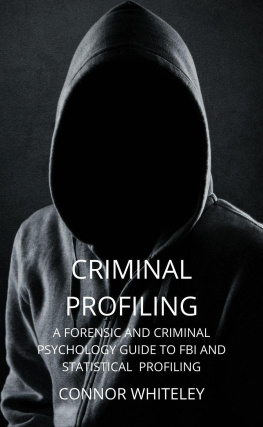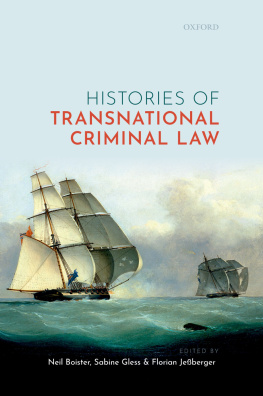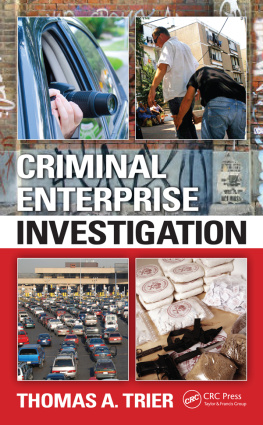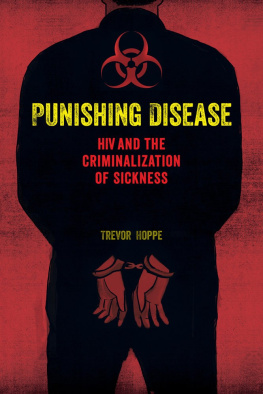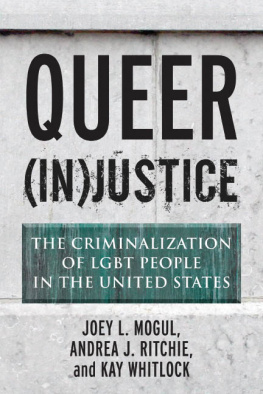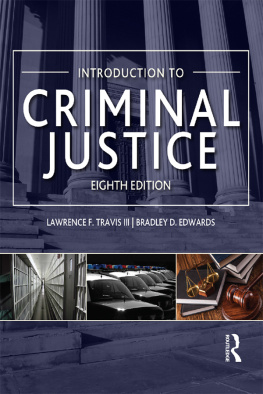Contents
(p.v) Preface
This volume is the first published product of a research project on Criminalization, funded by a grant from the Arts and Humanities Research Council (Grant No 128737). Three further collections of papers from the project's workshops and conference will be published in due course, along with three monographs by members of the project.
We are grateful to the Arts and Humanities Research Council for the grant that made this project possible, and to our own universities for the further material and administrative help that they providedthe University of Stirling and the Stirling Department of Philosophy, the University of Glasgow and the School of Law, the University of Warwick and the School of Law.
Above all, however, we are grateful to the authors who have contributed to this volume, to all those who took part in the workshops and meetings from which this volume has emerged, and in particular to the commentators on the drafts of the papers collected in this volumeKimberley Brownlee, Erik Claes, Rowan Cruft, Alon Harel, Tatjana Hrnle, Douglas Husak, Susan Mendus, and Andrew Williams. These meetings showed us how fruitful, and enjoyable, this kind of interdisciplinary work can be. We are also extremely grateful to Andrew Cornford for his assistance in preparing the final manuscript and to Christine Kelly for preparing the index.
Antony Duff, Lindsay Farmer, Sandra Marshall,
Massimo Renzo, Victor Tadros (p.vi)
(p.ix) List of Contributors
Andrew Ashworth is Vinerian Professor of English Law at the University of Oxford, and a Fellow of All Souls College. Among his books are Principles of Criminal Law (6th edn, 2009), Sentencing and Criminal Justice (5th edn, 2010), and, with Mike Redmayne, The Criminal Process (4th edn, 2010).
Markus Dubber is Professor of Law at the University of Toronto Faculty of Law. His publications include The Police Power: Patriarchy and the Foundations of American Government (2005), The Sense of Justice: Empathy in Law and Punishment (2006), and Handbook of Comparative Criminal Law (with Kevin Heller) (Stanford University Press, 2010).
RA Duff was educated at Oxford, and taught for forty years in the Philosophy Department at the University of Stirling. He now also holds a half-time position at the University of Minnesota Law School. He has published books and articles on criminal punishment, on the structure of criminal law, on criminal attempts, and on the criminal trial.
Lindsay Farmer is Professor of Law at the University of Glasgow. He researches and publishes in the areas of criminal law, legal theory, and legal history.
Mireille Hildebrandt is an Associate Professor of Jurisprudence at Erasmus University Rotterdam and a Senior Researcher at the Centre for Law Science Technology and Society at Vrije Universiteit Brussel. Her research interest concerns the nexus of philosophy of (criminal) law and technology, with a focus on the implications of smart environments on the foundations of democracy and the Rule of Law.
SE Marshall is Emeritus Professor of Philosophy at the University of Stirling. Her work is in the overlap between moral, political, and legal philosophy.
Kimmo Nuotio is Professor of Criminal Law and vice-director of the Centre of Excellence in Foundations of European Law and Polity Research, both at the University of Helsinki. He is also the Dean of the Faculty of Law. His research focuses mainly on theoretical issues of criminal law.
Massimo Renzo is Lecturer in Law at the University of York. He works primarily in legal theory and political philosophy. His main research interests are in the philosophical foundations of criminal law, international justice, state legitimacy, and political obligation.
John Stanton-Ife is a senior lecturer in law at King's College London. He has published papers on strict liability, theft and the limits of law. Among his current projects is an examination of the minimum standards for the valid, sexual consent of the severely mentally disordered
(p.x) Carol Steiker is the Howard & Kathy Aibel Professor of Law at Harvard Law School. Professor Steiker is the author of numerous scholarly works in the fields of criminal law, criminal procedure, and capital punishment. She served as co-author of the Kadish, Schulhofer & Steiker casebook, Criminal Law and Its Processes (8th ed. 2007), editor of Criminal Procedure Stories (Foundation 2006), and on the Board of Editors of the Encyclopedia of Crime and Justice (2nd ed. Macmillan, 2002). In addition to her scholarly work, Professor Steiker has worked on pro bono litigation projects on behalf of indigent criminal defendants and has served as a consultant and an expert witness on issues of criminal justice for non-profit organizations and federal and state legislatures.
Victor Tadros is Professor of Criminal Law and Legal Theory at the University of Warwick, England. He was educated at the University of Oxford and King's College, London and has held previous appointments at the Universities of Aberdeen and Edinburgh. He is in the process of completing a book entitled The Moral Foundations of Criminal Law. His books include Criminal Responsibility (OUP, 2005) and The Trial on Trial (3): Towards a Normative Theory of the Criminal Trial (Hart, 2007. Co-authored with Antony Duff, Lindsay Farmer and Sandra Marshall).
Lucia Zedner is Professor of Criminal Justice, Law Faculty and Corpus Christi College, University of Oxford. Since 2007 she has also held the post of Conjoint Professor at the Faculty of Law, University of New South Wales, Australia where she is a regular visitor. She has also held visiting fellowships at universities in Germany, Israel, America, and Australia. Her publications include Criminal Justice(Oxford University Press, 2004), Crime and Security (co-edited with Benjamin Goold, Ashgate, 2006),Security (Routledge, 2009) and many articles and chapters in the field of criminal justice and security.
Introduction: The Boundaries of the Criminal Law
RA Duff
Lindsay Farmer
SE Marshall
Massimo Renzo
Victor Tadros
Abstract and Keywords
This volume of chapters is the first published fruit of a four-year project, funded by the Arts and Humanities Research Council, on criminalization. This introductory chapter outlines the aims of the overall project, and indicates how the chapters collected here fit into it. It discusses the question of criminalization, attempts to work towards a normative theory of criminalization, and the boundaries of the criminal law. An overview of the subsequent chapters is also presented.
Keywords: criminalization, normative theory, criminal law, boundaries
This volume of papers is the first published fruit of a four-year project, funded by the Arts and Humanities Research Council, on Criminalization. In this Introduction, we outline the aims of the overall project, and indicate how the papers collected here fit into it.


